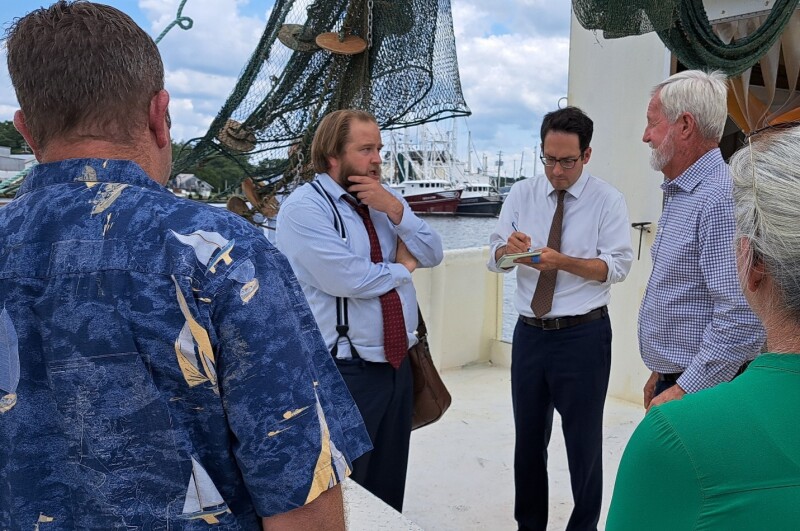
February 7, 2025

Over the last couple of years, domestic shrimp prices have slid to record lows. When I went to write an “At Sea” story in Delacroix, La., in 2024, the boat never left the dock. Instead, area fishermen gathered there to talk about flooded markets, cold storage facilities plugged with farmed shrimp, and the threats to their way of life.
The Southern Shrimp Alliance (SSA) represents shrimp fishermen, processors, and other members of the industry in eight warmwater shrimp-producing states and is going all out in addressing the problems that are killing the domestic industry.
“We’ve always been doing this,” says Alliance spokesperson Deborah Long. “We’re just getting better at letting people know. One high profile item on the SSA’s agenda is shedding light on fraudulent labeling of shrimp at the retail and restaurant levels.
“There was a lot of press last September about the new guidance from the Federal Trade Commission (FTC) to restaurants about how their décor and other things can illegally give consumers the impression that they’re eating local, wild caught shrimp when in fact they’re eating farmed shrimp,” says Long. “That blocks U.S. shrimpers from the market and gives consumers shrimp potentially produced with antibiotics, slave labor, and environmental abuses.”
The results of SeaD Consulting’s testing around the Gulf, some of which were highlighted in an earlier article, revealed the extent of fraud, and in some cases it was extreme, with only two out of 44 sampled restaurants tested in the Tampa St. Pete area serving authentic, wild-caught Gulf shrimp, according to a SeaD Consulting press release. “The testing by SeaD Consulting all around the Gulf continues to reveal how widespread the problem is,” says Long.
As a result of the Alliance’s work and data-driven advocacy, the FTC and state legislatures are taking action. “It’s really all about education,” says Long. “When we brought the FTC Commissioner, Alvaro Bedoya, down here and showed him that these problems were real, that’s when they understood and really took action.”
According to Long, State legislatures are also writing new laws and getting serious about enforcement. The objective is that the reduction of seafood fraud will enable US fishermen to receive premium prices for a superior product. “Another priority issue for shrimpers is to curb U.S. taxpayer funding of foreign shrimp aquaculture through institutions like the World Bank, which creates oversupply.
Last year, SSA created a database showing the U.S. Treasury is failing to oppose these projects as required by the Surplus Commodities Rule. In June 2024, the U.S. Treasury invoked this rule for the first time since its inception in 1986, signaling a new understanding of their obligations.”
Long notes that the Southern Shrimp Alliance’s arguments are supported by research. “That’s why they are effective at getting results on many levels,” she says.





